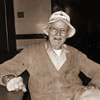
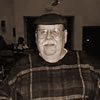
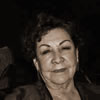
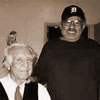
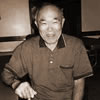
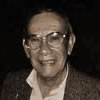
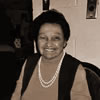
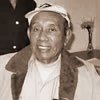
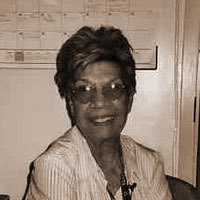 |
Connie Noriega
I didn't even know that it is what they call the sweatshops. My mom was already working in the sewing factory. I got out of school at fourteen, my mom said, "Well now you're gonna start working." I said, "I want to go to school." "No, no, you're gonna start working, you don't need to go to school." Okay, so, all right, but at that time you needed a permit to work, because I was fourteen. But she didn't think about it, so she took me to the factory. She said, "Might as well learn how to do everything." It was men's shirts, or jackets or whatever. But they came around, saying, "No, she can't work. She has to go to school one day out of the week." So I had to get a permit, and go to the school. But I ended up doing sewing. I only made seven dollars a week at that time. I think it must have been 1941. That's when you start growing up, you start figuring it out. There was a lady - a girl I guess, because at that time she was eighteen and I was younger. She was already making twenty dollars a week, and she was called top notch. So I said, "Oh gee, I want to be like her." So I did, I topped her! I used to make the pockets for the jackets, there's a slit pocket on some of the jackets. I don't know if you're familiar with the way the sewing industry works. It's section work they call it. My mom said, "Start with the pockets because they pay you more for the pocket." I didn't even have a union. I can retire now and collect nothing, because no union, no nothing. You just get your money, you work hard, you get the money, that's it. No pension, no nothing. My boss didn't want to belong to a union. |
| Mark Adler Danny Alvarez Pedro Bena Fred Bustillos Nellie Castillo Ann Fletcher Jesus Gonzalez Eva Guerrera Louis Hernandez Genevieve Hilton Teresa Hinojosa Mimi Hunt Dolores Jimenez Francisco Mena Connie Noriega David Orosco Eddie Ramirez Rose Savala |